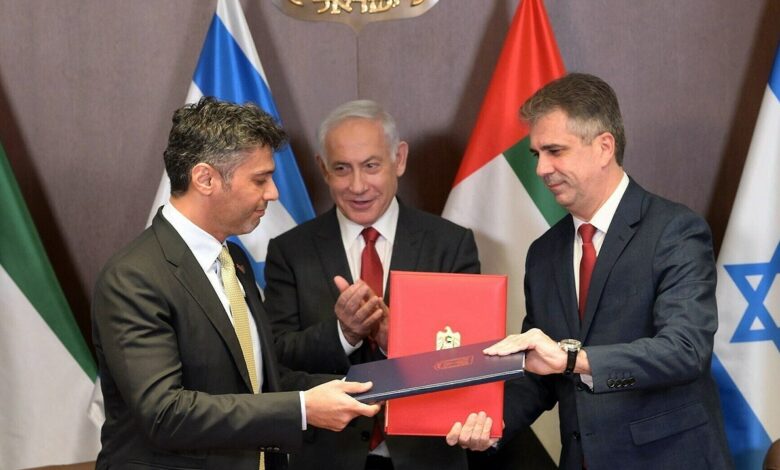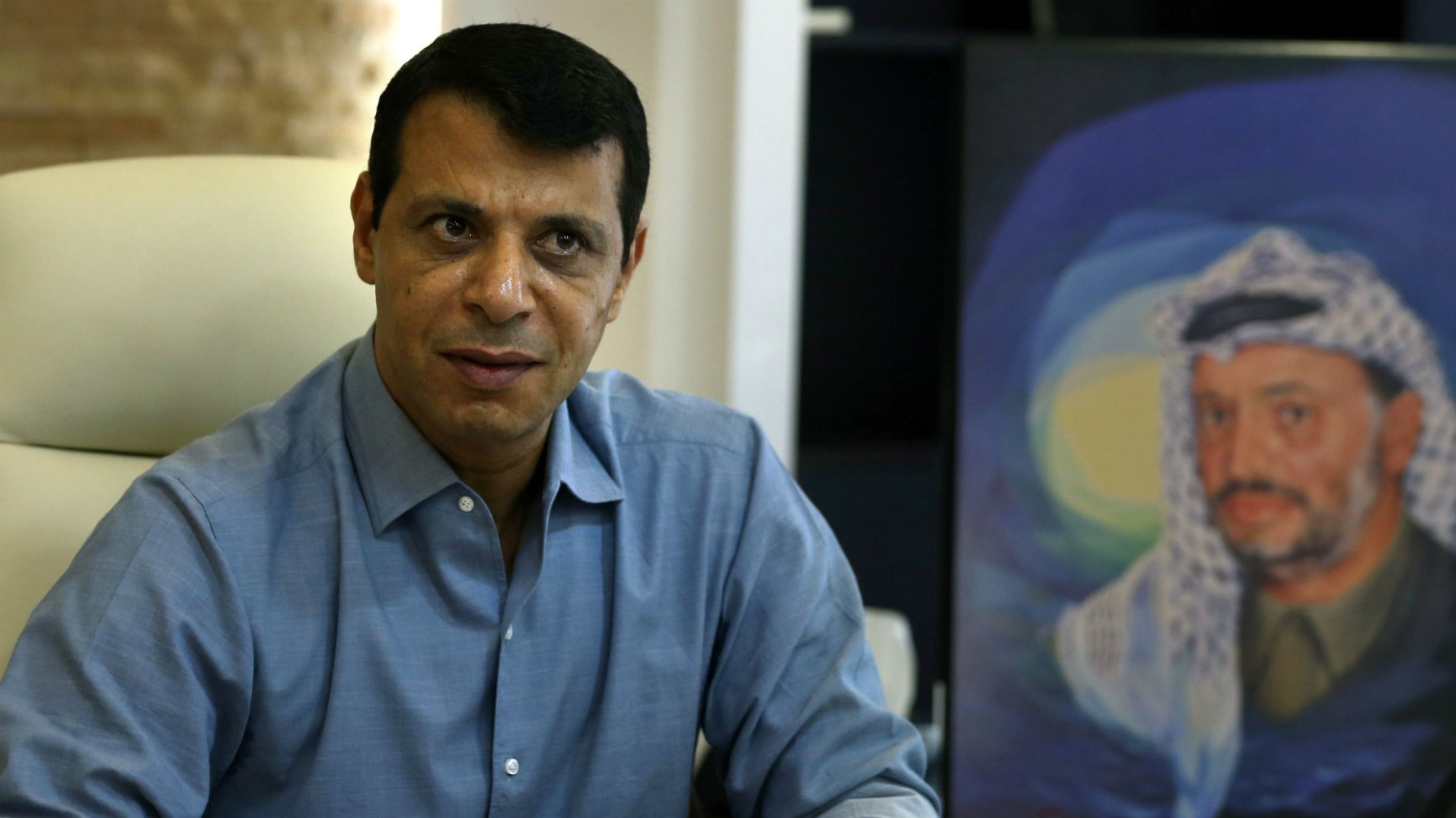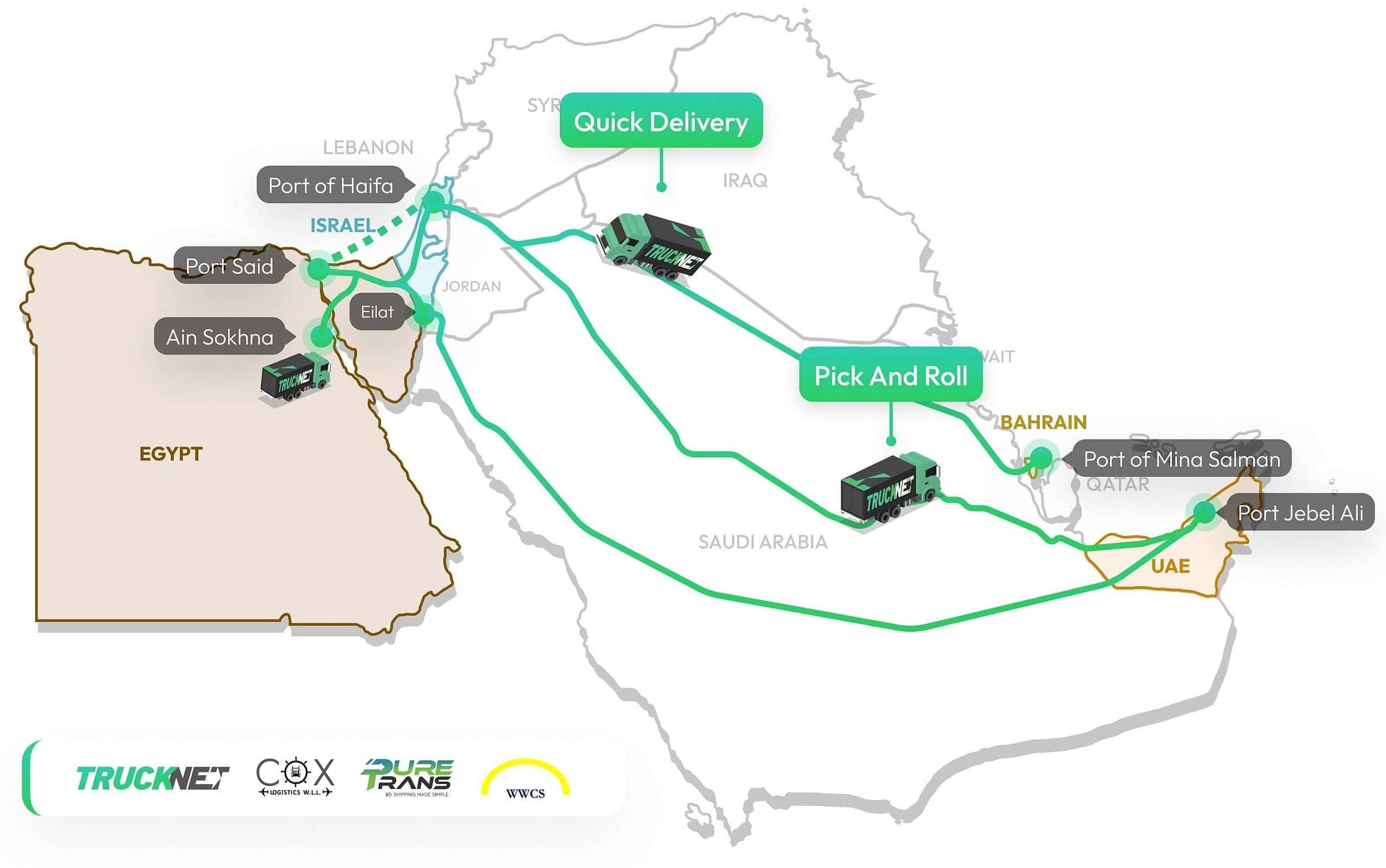Deciphering Abu Dhabi’s policy regarding the Gaza crisis; From Dahlan to Haifa

| Analysts in explaining the Emirati strategy regarding the Gaza crisis believe that the Arab government's cooperation with Tel Aviv will cause the Gaza Strip to not accept the aid and options supported by Abu Dhabi, such as Muhammad Dahlan, to manage this strip after the declaration of a ceasefire and the end of the war. |
According to the international group Tasnim News Agency, Operation Al-Aqsa storm and its impact It has caused many regional and international interested actors to react and enter this crisis on the geopolitical-geoeconomic relations of the West Asian region. In the meantime, the United Arab Emirates, as a member of the Abraham Pact and an ally of the Zionist regime, was one of the few Islamic countries that condemned the operations of Hamas deep in the occupied territories and expressed sympathy with the Zionists.
Although the Emirati authorities intend to present a humane image of themselves by declaring support for the rights of civilians in the Gaza Strip, allocating financial aid and creating a “mediational” and “humanitarian” image in front of the public opinion, but the field evidence indicates that Abu Dhabi and Tel Aviv have a plan to attack the Islamic resistance in Gaza. The creation of an alternative route for the transfer of goods needed by Israel from the Persian Gulf region to the north of the occupied territories is the most prominent symbol of the cooperation between the rulers of Abu Dhabi and the Netanyahu government. In the continuation of this note, we will try to analyze the policy and actions of the UAE during the Gaza war.
The dispute over the future ruler of Gaza
Choosing the type of government and the future ruler of Gaza has become one of the main and challenging issues during the intensive diplomatic talks between the heads of Western-Arab countries. The insistence of the Zionists to destroy the military-security capabilities of Hamas and to change the mechanism of the administration of Gaza has caused each of the governments or power blocs to increase their role in the political future of Gaza by proposing different options.
In this political campaign, Abu Dhabi, with the support of Mohammad Dahlan, the security figures close to the Palestinian Authority and the advisor of Mohammad bin Zayed Al Nahyan, intends to overtake Doha in order to increase its scope. His influence reached the eastern Mediterranean. According to some officials affiliated with the self-governing organization, Dahlan is the person who convinced the then crown prince of the UAE to join the Ibrahim Pact.
Mohammed Dahlan is the UAE-backed option to govern Gaza define that at the head of it, Mohammad Dahlan or someone approved by him will take over the management of this new complex. The condition of the Arab countries to help in the reconstruction of Gaza is to provide a guarantee from Tel Aviv regarding moving towards a “two-state” solution. In this plan, the Saudi-Emirati forces will have a direct presence in Gaza in coordination with the security agencies of the regime as a guarantor of peace and reconstruction. The implementation of such a plan seems to be in line with Israel’s interest in withdrawing the rule of resistance, diminishing the role of Iran-Qatar and helping the Hebrew-Arab peace process.
Some analysts believe that Dahlan, like Mahmoud Abbas or other proposed options for the administration of Gaza, is not very popular among the Palestinian people, but it is possible that the American-Israeli intelligence agencies can use Dahlan’s potential during the transition from a war situation to Consider the stability stage. In this plan, the Zionists intend to take advantage of Dahlan’s capacities to de-ideologize, disarm and change the government system in this area under the pretext of rebuilding Gaza.
Launching the land corridor and saving Israel’s economy
With the continuation of the ground operations of the Israeli army in different parts of the Gaza Strip, in November 2023, the Yemeni National Army announced that based on religious duty, international laws and the will of the Yemeni people, the range of resistance attacks will not be limited only to the south of the occupied territories; Rather, all economic interests and ships related to the Zionist regime in the northern Indian Ocean will become legitimate targets.
In response to this act of resistance, On December 18th, Lloyd Austin, the Secretary of Defense of the United States, announced the formation of the maritime coalition “Guardians of Welfare” to create a safe line for the passage of commercial ships. After the defeat of this naval coalition, Washington-London unilaterally accepted UN Security Council Resolution 2722 and started attacking strategic points in Yemen. The UAE, along with other Arab countries such as the Kingdom of Saudi Arabia or Egypt, did not join these military alliances. It is interesting to note that the Emiratis did not even allow Centcom forces stationed in this Arab country to attack resistance bases in Iraq-Syria.
Dubai-Haifa land corridor and military campaign Ansarullah in the Red Sea
However, there are signs of Abu Dhabi’s cooperation with the Zionist regime in order to defeat the sea blockade of this The regime is represented by the Yemeni army. For example, while the Yemenis are trying to increase the cost of the Gaza war for this regime by weakening the transit route of the Zionist regime in the Red Sea, the United Arab Emirates is creating a corridor line from Jebel Ali to Tel Aviv for the Israeli regime as an economic artery. Not only should Israel not be cut off, but it should create a new breathing path for this regime. In addition, before the start of the surprise operation of Al-Aqsa storm, the United States, in cooperation with India, the Arab countries of the Persian Gulf, especially the UAE, and the Zionist regime, planned to unveil the “India-Middle East-Europe” corridor line, but Hamas’ preemption caused it to be delayed. This plan was made.
Despite killing more than 30,000 Palestinian women and children in the Gaza Strip, but still the UAE has not changed its conservative policies and does not intend to withdraw from the Ibrahim Pact or the economic embargo on Tel Aviv. Of course, in order to restore their image among Muslim nations, the Emiratis try to play a role in the process of approving ceasefire resolutions or sending humanitarian aid to Gaza. The approval of the draft proposed by the UAE in the Security Council with the aim of establishing a humanitarian ceasefire in Gaza can be evaluated in line with this policy.
In the intellectual system of the UAE leaders In order for this sheikh to be able to continue to dominate the maritime trade in the Red Sea and Gulf of Aden through the “Dubai Ports” company, he must move in line with the interests of the United States and the Zionist regime and never be under the “threat” of Western governments. At the same time, the UAE plans to increase its weight in the future developments of the occupied Palestine along with its allies Saudi Arabia and Egypt. Reacting to the Emirati strategy towards the Gaza crisis, analysts believe that the Arab government’s association with Tel Aviv will cause the people of the Gaza Strip to not trust the aid and options supported by Abu Dhabi after the declaration of a ceasefire and the end of the war. p dir=”RTL” style=”text-align:justify”>Author: Mohammad Bayat, expert on West Asian issues
end of message/
| © | Webangah News Hub has translated this news from the source of Tasnim News Agency |




